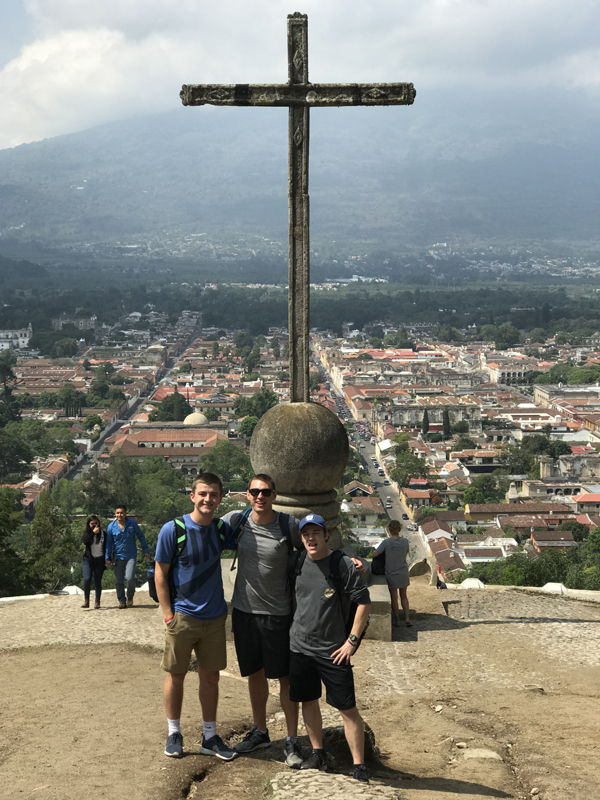Working Toward Global Health
As part of an on-going search for long-term solutions to the global health crisis, three Butler University Delts, Kyle Smith (2018), Stephen O’Connor (2019), and Nick Bantz (2020) traveled to Quetzaltenango, Guatemala last year. They worked with Timmy Global Health, an Indianapolis-based nonprofit organization partnering with colleges and volunteers to expand access to healthcare and empower students and volunteers to take action to fight today’s global health challenges.
“Every year, our chapter [of Timmy Global Health] takes around 18 students to serve a five-day clinic in five different underserved Mayan communities,” O’Connor said. “This year, I was joined with two Delt brothers, making this experience so much more exciting.”
While in Guatemala, they worked in a variety of different jobs. There was a history station where they talked to the patients about their chief complaints and ailments. They worked in vitals where they took height, weight, blood pressure, and temperature. They worked side by side with the medical professionals as scribes, taking down patient’s medical history, symptoms, and putting in the prescriptions ordered. They also got the chance to work in the pharmacy where they counted and distributed the medicine.
“We did a little bit of everything. We were kind of used as a multipurpose tool,” Smith said. “My personal favorite thing to do was take the patient history because it allowed me to use Spanish. To be able to sit down with a patient and take their complaints and speak to them in Spanish was very rewarding.”
Some of the people treated in these clinics in Guatemala came from the challenging conditions and having access to the clinic, even for a brief time, gave them a second chance at life.
Guatemala has the fourth highest rate of malnutrition in the world. Nearly 49 percent of the children are malnourished, and the numbers are only higher in indigenous areas. 1
Although healthcare is guaranteed by the Guatemalan constitution, many people have a tough time accessing it as those in rural areas face language, cultural and resource barriers. On average, 40 percent of the population has no access to healthcare services.
“Our presence there really gave them a chance, not just to survive, but to thrive as human beings,” Smith said.
There are many other organizations like Timmy Global Health that support the different health crises happening worldwide.
“I would encourage everyone to find an organization whose mission they support and take a trip, get educated about these ongoing global health disparities,” O’Connor said. “This isn't a them problem, this is an everyone problem, and even if you aren't in healthcare, you can still be a healer.”
O’Connor echoes the founder of the Timmy Global Health efforts, Dr. Chuck Dietzen who says, "We weren't all born to be doctors and nurses, but we were all born to be healers.”
Being able to learn how a different culture governs and operates allowed the students to open their eyes to struggles they may not have seen without this trip. Being able to see the impact made on one community is small scale compared to all the communities in need around the world, but no matter how small, it means so much to the people who have so little.
“You don't have to be in healthcare or going into healthcare to make an impact on global health,” O’Connor said. “That impact can be made just by being informed.”

